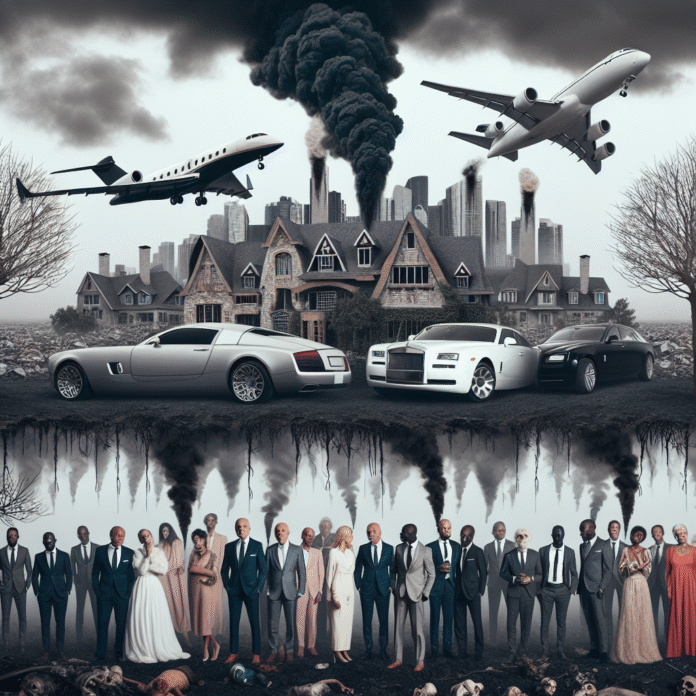Wealthiest 10 Percent Drive Global Warming
Study Reveals Wealthiest 10% of the Planet Responsible for Global Warming
Recent research has highlighted a crucial aspect of climate change: the significant contribution of the world’s wealthiest individuals to global warming. The study emphasizes that the richest 10% of the population are primarily responsible for the majority of carbon emissions, which play a pivotal role in climate change.
Understanding the Contribution of the Wealthy
This study indicates that the affluent segment of society has a disproportionately high carbon footprint compared to the rest of the population. The wealthiest individuals often engage in activities that lead to high levels of emissions, such as luxury travel, maintaining multiple homes, and consuming energy-intensive products. Their lifestyle choices result in a carbon output that is drastically higher than that of the average person.
The Disparity in Emissions
According to the findings, the top 10% of earners produce more than half of the world’s carbon emissions. In contrast, the bottom 50% of the population contributes only a fraction of total emissions, highlighting the stark disparity in how climate change affects different socioeconomic groups. This inequality raises ethical questions regarding responsibility and accountability for climate action.
Policy Implications and Solutions
Addressing the emissions of the wealthiest individuals is crucial for effective climate action. Policymakers are urged to consider implementing measures such as progressive taxation on carbon emissions, promoting sustainable practices among the affluent, and encouraging investments in green technologies. By targeting the largest sources of emissions, governments can make significant strides in mitigating climate change.
The Role of Consumer Behavior
Consumer behavior among the wealthy also plays a vital role in this equation. As more affluent individuals become aware of their environmental impact, there is a growing trend towards sustainable luxury goods and services. Many luxury brands are now prioritizing sustainability, offering eco-friendly products that appeal to environmentally conscious consumers.
Global Collaboration for Change
Tackling climate change is a global challenge that requires cooperation across all sectors of society. The involvement of the wealthiest individuals is essential, as their resources and influence can drive significant change. Initiatives that promote climate justice and equitable solutions will be critical in ensuring that all segments of society contribute to a sustainable future.
In conclusion, the findings of this study underscore the urgent need for targeted climate action aimed at the wealthiest 10% of the population. By acknowledging their disproportionate role in global warming, we can foster a collective effort to combat climate change and work towards a more sustainable planet for future generations.


